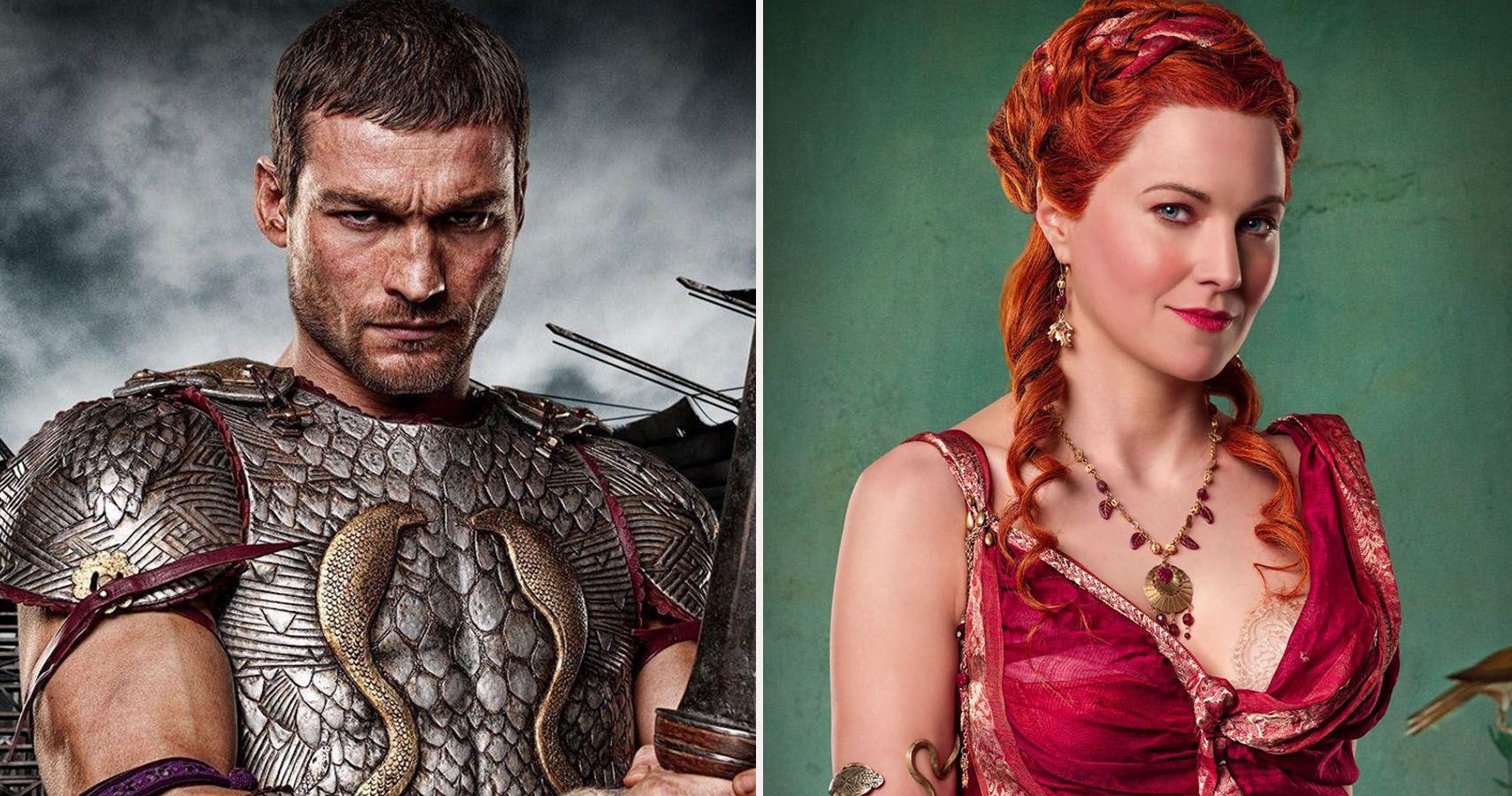The gladiatorial arena of Spartacus: Blood and Sand is a brutal place, filled with violence and bloodshed. But even amidst the constant threat of death, there’s a certain sense of honor among the gladiators. One episode, in particular, episode nine titled “The Debt,” stands out for its intense fight scenes, its exploration of loyalty and betrayal, and it’s stark reminder that life is a constant struggle for survival.

Image: www.victoriana.com
As we dive deeper into the Roman world of Capua, we see the power dynamics shifting, the lines between good and evil blurring, and the gladiators facing a turning point in their quest for freedom. Episode nine, “The Debt,” is an episode where we witness the true cost of betrayal. We follow Spartacus as he struggles to navigate a treacherous path, filled with enemies and allies alike, all while trying to maintain his honor and his freedom.
The Cost of Betrayal
Episode 9, “The Debt,” delves into the complexities of betrayal. After the defeat of the rebels in the previous episode, Spartacus found himself in a precarious position. His loyal friend, Crixus, had been captured and was facing a gladiatorial fight to the death in the arena. Spartacus’s fierce desire to rescue his friend clashed with the reality that he was still under the control of Batiatus. He was forced to make a difficult choice and betray his commitment to the gladiator school to save his friend. This episode delves into the internal conflict between loyalty and self-preservation, and the agonizing choices that are often demanded of us in the face of conflict.
We witness the emotional turmoil of the gladiators as they grapple with the weight of their decisions. Betrayal is a complex act that can have devastating consequences, tearing apart friendships and leaving a trail of pain and destruction. The episode makes it clear that there is no easy solution to conflicts of loyalty, and that the costs of betrayal can be far greater than anyone could have anticipated.
A Turning Point for Spartacus
Episode 9 marks a significant turning point for Spartacus. We see him making a crucial decision that will significantly impact the course of the uprising. In attempting to save Crixus, he comes face-to-face with the harsh realities of power. He sees firsthand the cunning machinations of Batiatus and the ruthless Roman system that seeks to control him. This experience further fuels his anger and resentment toward the Romans, ultimately strengthening his resolve to fight for freedom.
He understands that his fight is not just for his own liberation, but for the liberation of all the enslaved gladiators.
This episode also highlights the enduring power of friendship and loyalty. Despite the treacherous landscape of Capua, the bond between Spartacus and Crixus remains strong. They are bound by a shared history of hardship and a common desire for freedom. Their loyalty to each other is the foundation upon which their rebellion is built. It’s a testament to the transformative power of companionship that can turn simple men into valiant warriors who fight for their ideals.
A Glimpse into Roman Society
Episode 9 also offers a glimpse into Roman society. We see the power dynamics between the Romans and the slaves. The scenes of the gladiatorial games give us a glimpse into their brutal entertainment. The Romans are shown to be a ruthless society, obsessed with power and control. They view the gladiators as mere commodities, and their lives are disposable in the pursuit of amusement and entertainment. The lives of the slaves are undervalued and the constant threat of violence hangs over them.

Image: lasopateens584.weebly.com
Tips for Understanding Spartacus: Blood and Sand
To get the most out of Spartacus: Blood and Sand, it helps to understand the historical context in which the show is set. The show is inspired by the real-life rebellion of Spartacus, a Thracian gladiator who instigated a major slave revolt against the Roman Republic. While the show takes creative liberties with the historical details, it still draws inspiration from the real-life events, providing an insight into the harsh realities of life for slaves in ancient Rome.
You can also learn more about Ancient Roman history, which gives you a better understanding of the political, social, and cultural landscape of the Roman Empire. Understanding Roman warfare and the gladiatorial games helps you to appreciate the brutal reality of the show.
Frequently Asked Questions
Q: What is the significance of “The Debt” in Spartacus: Blood and Sand?
A: “The Debt” is a turning point for Spartacus and establishes his resolve to ultimately liberate himself and his fellow gladiators. It highlights the complexities of betrayal and loyalty in the face of power struggles as well as the harsh realities of life in Roman society for both slaves and for those attempting to escape the system.
Q: What happens to Crixus in episode nine?
A: He is captured and faces a gladiatorial fight to the death in the arena. Spartacus must make a difficult choice to betray the gladiator school so he can save his friend.
Q: What are the historical events that inspired this episode?
A: Episode nine is an example of how creative liberties are used to bring historical events to life. It draws inspiration from the real-life rebellion of Spartacus, and the constant threat of violence faced by the slaves in ancient Rome.
Spartacus Blood And Sand Episode 9
Conclusion
Spartacus: Blood and Sand episode 9, “The Debt,” provides an exciting look into the power dynamics, the complexities of betrayal, and the harsh realities of Roman society. It’s a powerful episode that reminds us of the human cost of conflict and the importance of loyalty. If you’re looking for a show that combines historical drama with exciting action, Spartacus: Blood and Sand is definitely worth checking out.
Are you a fan of Spartacus: Blood and Sand? What are your thoughts on episode 9? Let us know in the comments!






